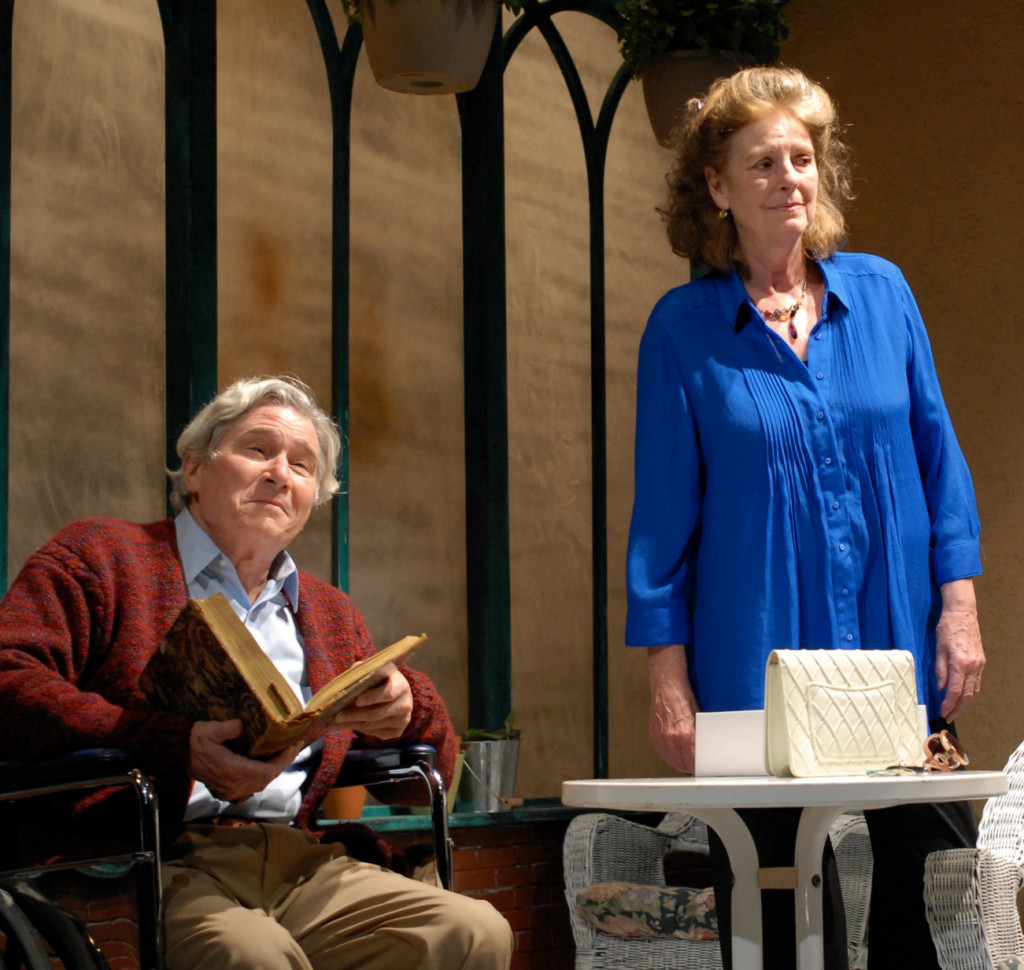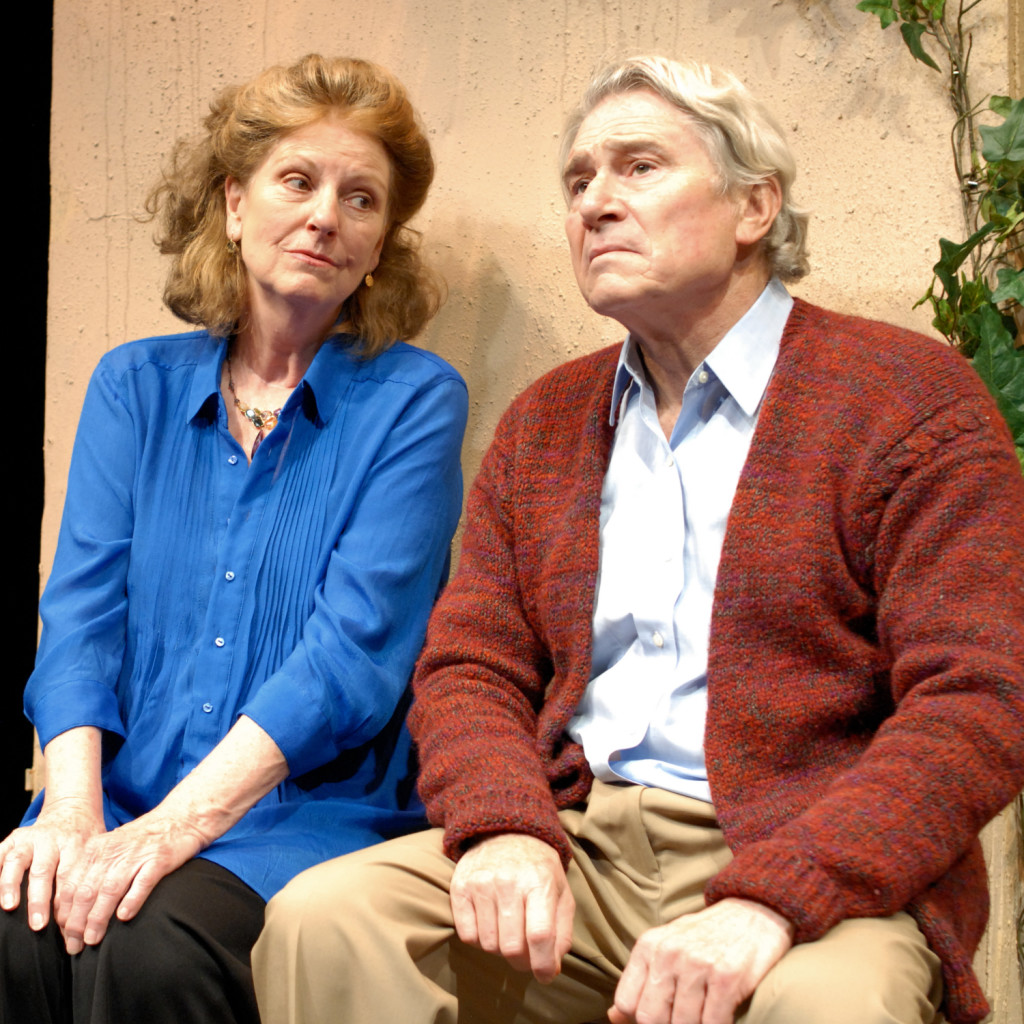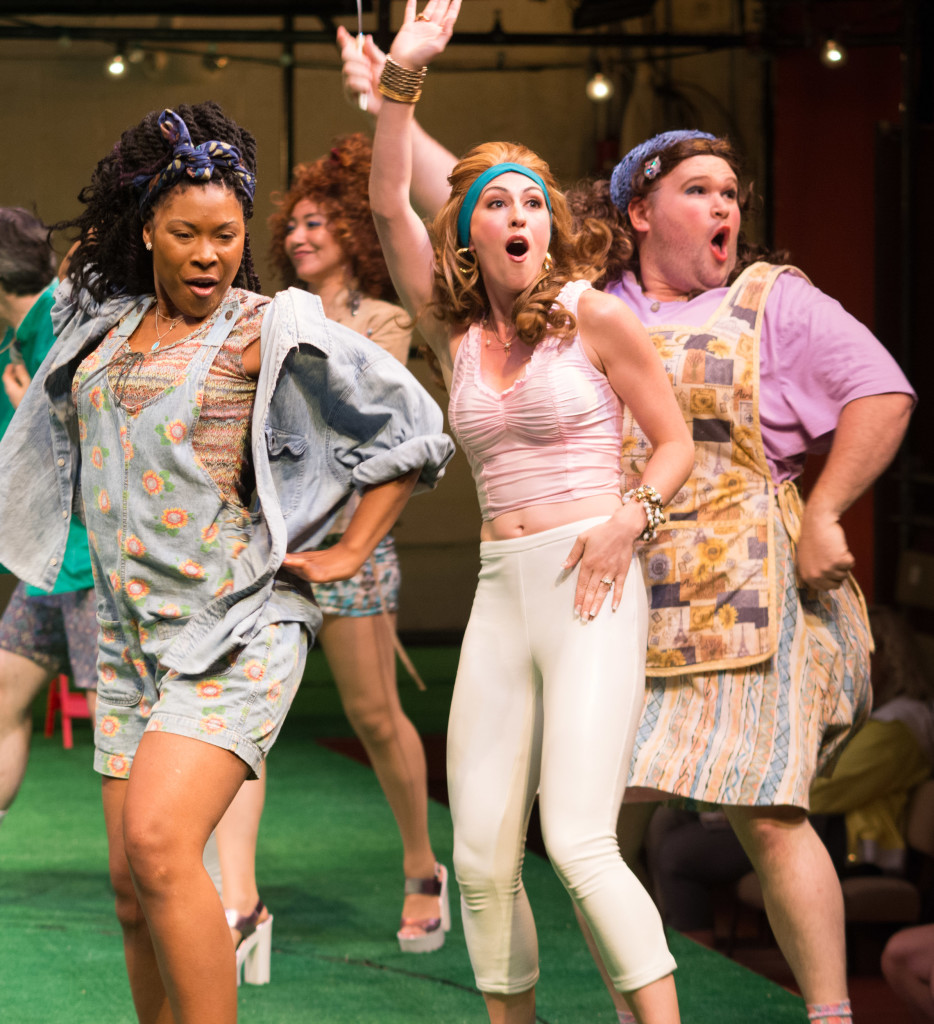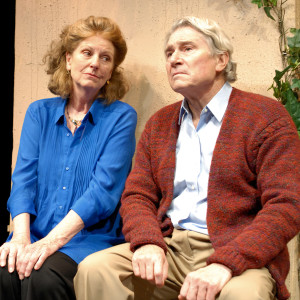Two surprises came packaged in a couple of plays that opened last week. One of those I had eagerly anticipated, while the other was quite unexpected.
In Shakespeare & Company’s latest staging of The Comedy of Errors, the Bard’s early farce about two pairs of identical twins caught in a cascade of mistaken identities, each set of twins is played by a single actor. I knew about this gimmick going in; what I looked forward to was finding out how director Taibi Magar was going to manage the final scene, when all four are onstage at once. I won’t be the spoiler here, but I will say that it’s both surprising and cleverly executed.
The production concept is certainly unexpected, too. The play is set in Ephesus, on the eastern shore of the Mediterranean, but this rendition takes us into Jersey Shore territory, with a Desperate Housewives gloss. We’re at the seaside haunt of an extended mob family, presided over not by a Duke but a Don (Josh Aaron McCabe in Brando mode). The guys have big attitude and twitchy smiles, the dolls big hair and skin-tight capris.
Ian Lassiter plays both Antipholus of Ephesus, a made man with a foxy wife and a bimbo mistress, and his long-lost twin, also called Antipholus, newly arrived in town with no knowledge of his brother’s existence. The play usually depends on the audience’s willing acceptance of the convention that two unrelated actors are indistinguishable because they are dressed alike. Here the challenge is to make one body serve for two people. Lassiter delivers that masterfully, giving each Antipholus distinctive mannerisms, even different statures and accents.
Not so Aaron Bartz as the two Dromios, twin servants to the Antipholi. You need to take note of the props and costume changes to distinguish between them, and where Lassiter gives a street-smart finesse to the comic hijinks, Bartz simply attacks them with gesticulation and volume.
Magar’s production in general relies too much on slapstick and too little on wit, and the concept joke wears thin before the end of its brisk 90-minute journey. But the large, boisterous cast keeps the energy up and the laughs coming. I especially enjoyed Douglas Seldin in dumpy drag as the horny, “spherical” kitchen wench; Cloteal L. Horne as the sexy sister-in-law torn between duty and desire; Malcolm Ingram as the sundered twins’ rickety old father; and above all Kelley Curran, the side-splitting epitome of talky, trashy South Jersey chic.
In its first quarter century, Chester Theatre Company has earned a reputation, unique in the region, as the home of well-crafted, small-scale, skillfully acted and refreshingly literate theater that explores and celebrates life’s complexities. The surprise I found in Halcyon Days, running through this weekend, isn’t in a plot twist as it is at S&Co. It’s that the play itself is so startlingly ordinary, and the production so lackluster. I found the script rather prosaic – a double surprise for a company that specializes in “language-rich, thought-provoking plays” and the fact that this one springs from that most lyrical of soils, Ireland.
Halcyon Days brings together Sean and Patricia, two “inmates,” as she puts it, of a state-supported nursing home. He’s an old actor who once “strode the boards” but now can’t stride at all, confined to a wheelchair and, on good days, a walker. She’s a former elementary school principal with a chronic liver condition (no, not from alcohol, she sternly insists) who checked in here for a temporary “respite” but has since decided she’ll probably check out here, too.
Both have been rejected, in effect, by the only people they’ve been close to – she by the sister she lives with, burned out from constant caretaking, he by his longtime lover, a man. (There’s a sweet irony in hearing Sean talk in this 2012 play about the homosexual taboo in that Catholic country which has just overwhelmingly endorsed gay marriage by popular vote – a striking proof of how far and fast things have shifted.)
Deirdre Kanahan’s brief play (another intermissionless 90 minutes) covers themes of loneliness, loss of purpose and identity, and other late-life sorrows, with a plot arc that slowly turns the tables of agency in the relationship and sees two closed-up flowers gradually blossoming in each other’s light. This is well-trodden territory – nothing wrong with that, but I didn’t find much in the way of fresh insights compellingly expressed.
Kinahan’s script is also rather inconsistent. In the first scene, for example, Sean is forgetful and confused – “I have trouble with the words … sometimes they stop” – but then he’s perfectly present for the rest of the play. In a later scene, he’s terrified to leave the sanctuary of the glassed-in conservatory for the open-air patio (Matthew Iacozza’s split set nicely captures the home’s shabby coziness), although we’ve seen him sitting out there in a previous scene.
On opening night James Warwick’s production hadn’t quite gelled. The dramatic pace and flow seemed tentative, with Jill Tanner as bossy but floundering Patricia taking time to gain focus and stumbling on a few lines. But Anderson Matthews’ performance as Sean more than repaid our attendance. In him, we saw a proud man shrunken by grief and regret, heard an actor’s resonant voice, still word-for-word on Henry V’s big speech but now cracking with age, and felt the rage against the dying of the light mellow into acceptance (“We all don’t get it all”) – the kind of finely etched and deeply felt performance that makes Chester an essential stop on the summer theater circuit.
Shakespeare & Company photos by Enrico Spada; Chester Theater Company photos by Rick Teller.
If you’d like to be notified of future posts, email StageStruck@crocker.com








